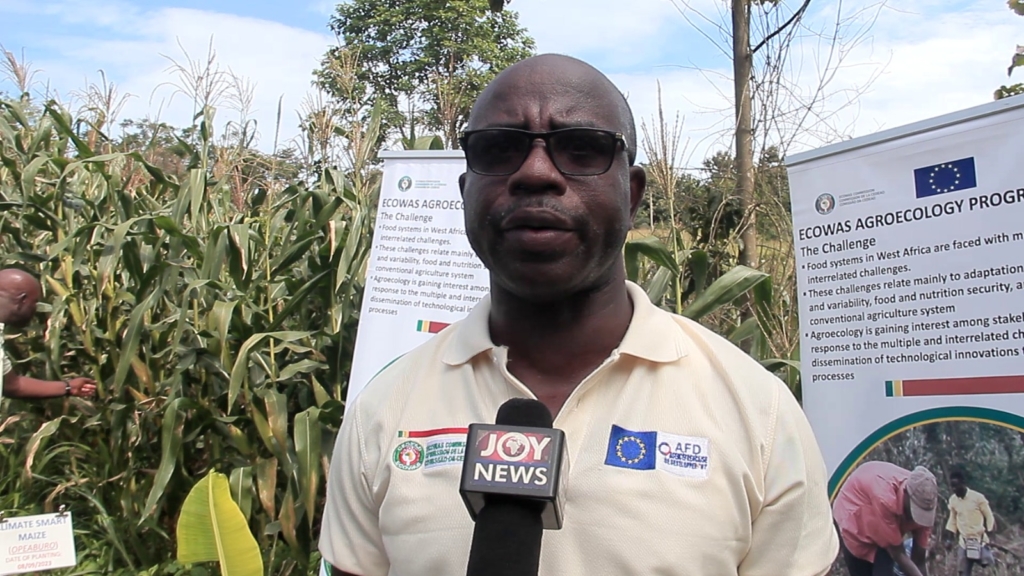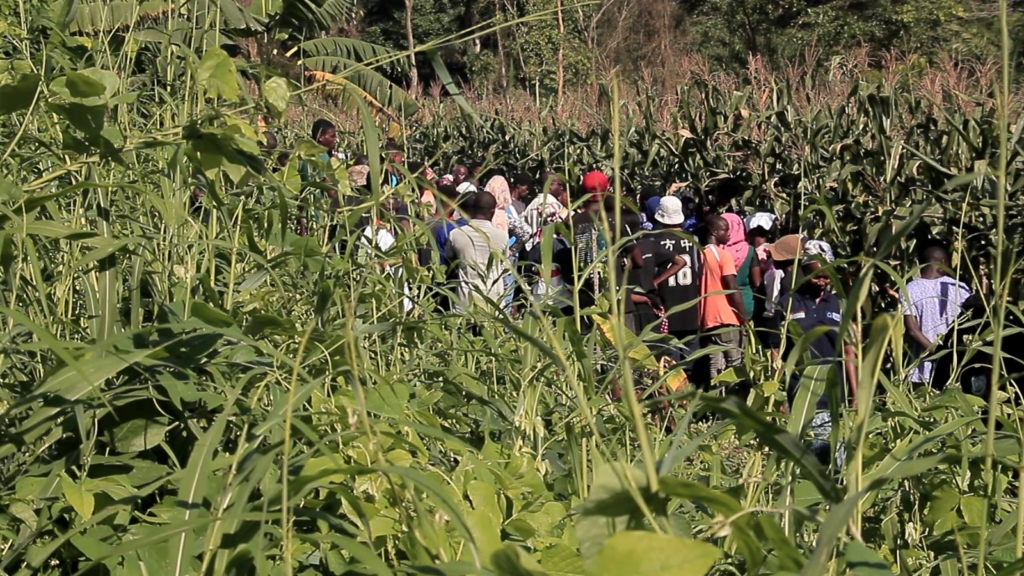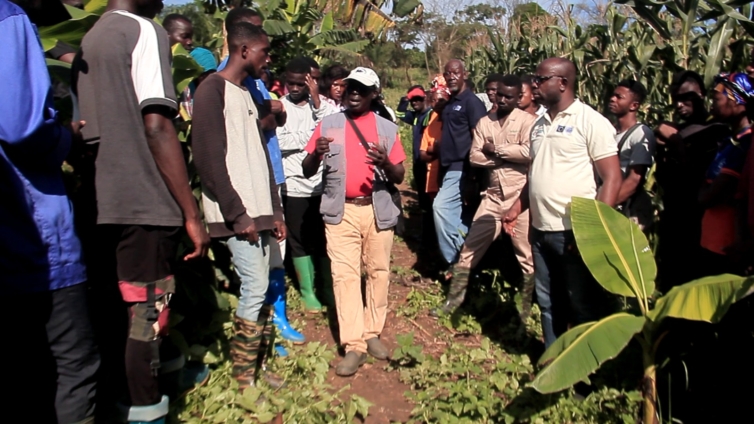One hundred and fifty farmers, students, and MoFA staff have received training on the economic advantages of agroecological farming. This approach minimises dependence on external inputs and boosts yields through effective soil management practices.
The training, supported by ECOWAS, the European Union, and the French Development Foundation, aims to highlight the benefits of agroecology and provide tangible evidence for its implementation, with the initiative targeting increased yields and profits for farmers.
Embracing agroecological practices enables farmers to lessen their reliance on expensive external inputs while concurrently boosting crop yields. This is achieved through the implementation of effective soil management techniques, fostering a healthier and more sustainable farming system.

The diverse group of beneficiaries at the training, including 70 students from Kwadaso Agricultural College, 50 farmers, and nine staff members from the Ministry of Food and Agriculture Ghana, among others, highlights the inclusive nature of the initiative.
Dr. Stephen Yeboah, senior research scientist at the Crop Research Institute underscores that the PAPISHE initiative, sponsored by ECOWAS, the European Union, and the French Development Foundation, aims to promote agroecological farming in the West African Sub-Region.
“We are driven to showcase sustainable farming methods that encompass various agroecological interventions," he remarked, emphasising that a significant number of soils are presently depleted and under stress. Hence, it is essential to implement cover crops to enhance soil fertility.

The project is executed in collaboration with key implementing partners, namely the Centre for No-till Agriculture, the Crop Research Institute, and the National Association of Farmers and Fishermen Award Winners Association.
The Director of the Centre for No-till Agriculture, Dr. Kofi Boa provided insight into the initiative.
The application of agroecological practices, including cultivating maize and incorporating cover crops, contributes to enhancing soil structure, supplying nutrients for sustainable crop production, and addressing environmental degradation.
Dr. Boa from the Centre for No-till Agriculture guided participants on a field tour, showcasing the favorable outcomes of implementing full soil cover with mucuna in a specific area of the field.
The Agricultural Director for Atwima Nwabiagya North, Grace Akyei praised the initiative and underscored its advantages for local farmers, particularly in terms of enhancing food production and protecting the environment.
She expressed support, stating, "This is a positive step that my farmers should adopt to enhance their crop yields and increase profits." Additionally, she noted that local farmers are facing challenges such as unpredictable rainfall and extreme temperatures, making initiatives like these even more crucial.
The mucuna serving as soil cover provides various benefits by revitalising the soil through the litter fall from the mucuna and the accumulation of biomass. This process contributes to improving soil quality. Moreover, the soil cover acts as a preventive measure against rainwater runoff, effectively reducing soil erosion.
Latest Stories
-
Paris 2024: Opening ceremony showcases grandiose celebration of French culture and diversity
3 hours -
How decline of Indian vultures led to 500,000 human deaths
4 hours -
Paris 2024: Ghana rocks ‘fabulous fugu’ at olympics opening ceremony
4 hours -
Trust Hospital faces financial strain with rising debt levels – Auditor-General’s report
5 hours -
Electrochem lease: Allocate portions of land to Songor people – Resident demand
5 hours -
82 widows receive financial aid from Chayil Foundation
5 hours -
The silent struggles: Female journalists grapple with Ghana’s high cost of living
5 hours -
BoG yet to make any payment to Service Ghana Auto Group
5 hours -
‘Crushed Young’: The Multimedia Group, JL Properties surprise accident victim’s family with fully-furnished apartment
6 hours -
Asante Kotoko needs structure that would outlive any administration – Opoku Nti
6 hours -
JoyNews exposé on Customs officials demanding bribes airs on July 29
7 hours -
JoyNews Impact Maker Awardee ships first consignment of honey from Kwahu Afram Plains
8 hours -
Joint committee under fire over report on salt mining lease granted Electrochem
8 hours -
Life Lounge with Edem Knight-Tay: Don’t be beaten the third time
8 hours -
Pro-NPP group launched to help ‘Break the 8’
8 hours

